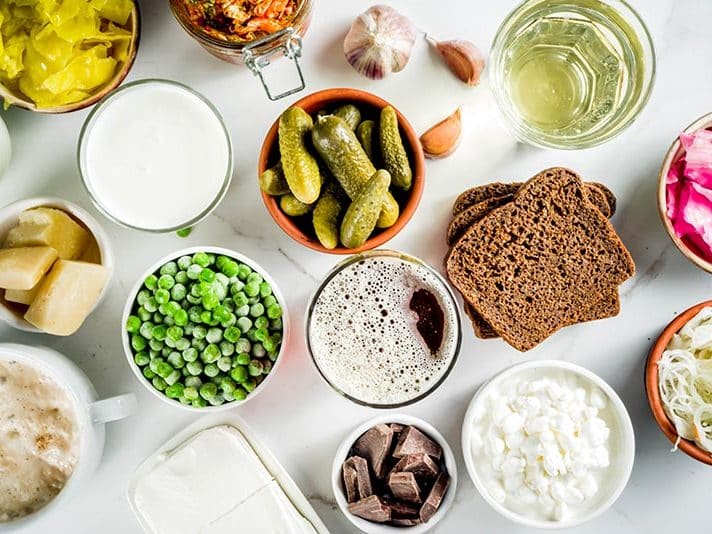Our bodies are swarming with bacteria. In fact, more than 100 trillion bacteria live in the digestive system alone. That’s more than the number of cells in a person’s body.
But don’t worry — many of these bacteria are needed for the human body to function properly and stay healthy. That’s why the right balance of bacteria is extremely important. If this balance is off, health problems may occur.
Fortunately, there are two easy ways to support and help good bacteria thrive.
Where to start? Probiotics
We hear about probiotics all the time. In fact, they are all around us. Lactic acid, active cultures, cheddar — yes, cheddar cheese — they are all naturally occurring probiotics.
Probiotics are live organisms similar to the ones found in our bodies, and just like those found in the body, probiotics have many health benefits.
“Probiotics work by supporting the good flora that naturally exist in our digestive tract,” says John Weaver, MD, JD, family medicine physician on the medical staff at Methodist Richardson Medical Center. “They are beneficial bacteria that help move the digestive tract along, synthesize certain vitamins, and play a role in our immune response to inflammation and infection.”
Specifically, probiotics can:
- Boost the immune system
- Keep skin healthy
- Help ease inflammatory bowel disease symptoms
- Reduce the frequency of respiratory infections
- Relieve diarrhea
“For most people, it is a good idea to have a diet rich in probiotic foods or take a probiotic supplement,” Dr. Weaver says.
So what foods contain probiotics? Some may surprise you:
- Buttermilk
- Cheddar
- Cottage cheese
- Gouda
- Green peas
- Kefir
- Kimchi
- Kombucha
- Miso
- Mozzarella
- Natto
- Olives
- Pickles
- Sauerkraut
- Tempeh
That’s food for thought the next time you visit the grocery store. But for those with a compromised immune system, there is a warning.
“For people with cancer or those who lack a normal immune system, avoid supplementing with probiotics,” Dr. Weaver cautions. “Talk with your doctor before taking a probiotic supplement.”
What comes next? Prebiotics
When foods help feed the good bacteria in your gut, they’re called prebiotics. A prebiotic is a nondigestible carbohydrate that serves as a fuel source for a probiotic. Think of it as boosting up the benefits of the probiotic.
“It is believed that prebiotics can aid in the absorption of some minerals, including calcium,” Dr. Weaver says. “Additionally, prebiotics aid in the production and maintenance of probiotics, which themselves aid digestion, especially in keeping the digestive tract moving.”
Just like a probiotic, prebiotics are loaded with health benefits, including:
- Lowering the risk for cardiovascular disease
- Improving digestion
- Strengthening immunity
- Decreasing inflammation
- Easing anxiety
- Helping with weight loss
- Relieving stress
So when shopping, add these prebiotic foods to the grocery list:
- Almonds
- Apples
- Artichokes
- Asparagus
- Bananas
- Berries
- Chicory root
- Citrus
- Garlic
- Mushrooms
- Onions
- Soybeans
- Sweet potatoes
- Whole-wheat items
Teamwork for a healthy gut
Prebiotics and probiotics work together, so for the biggest benefit, eat prebiotic and probiotic foods together. There are so many healthy options, it’s easy. But for example, try yogurt topped with bananas and almonds, or top grilled asparagus and mushrooms with aged Parmesan cheese. Your healthier digestive system, and body, will thank you for it!
RIGHT FOR YOU?
If you’re wondering if your health might benefit from a probiotic supplement, find a primary care provider to offer some advice.

